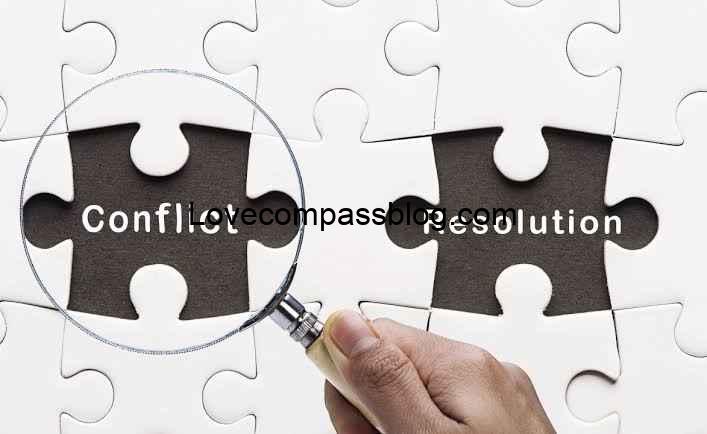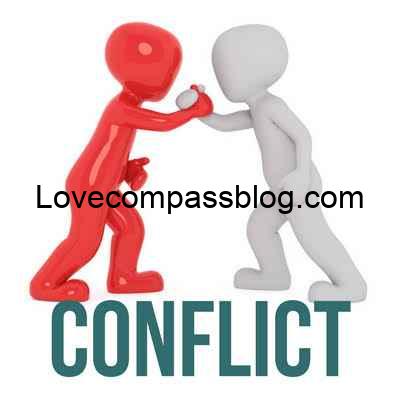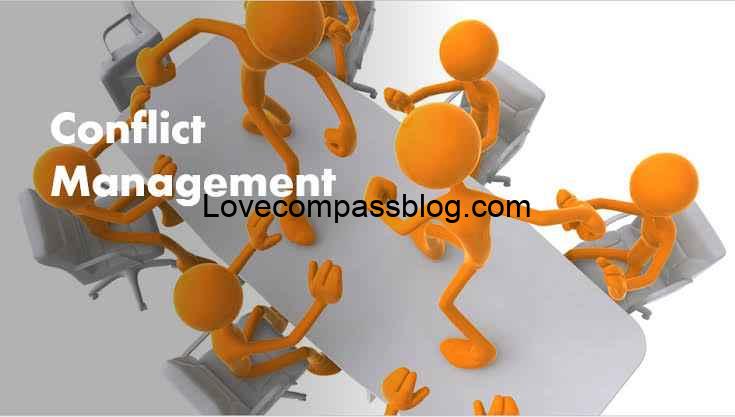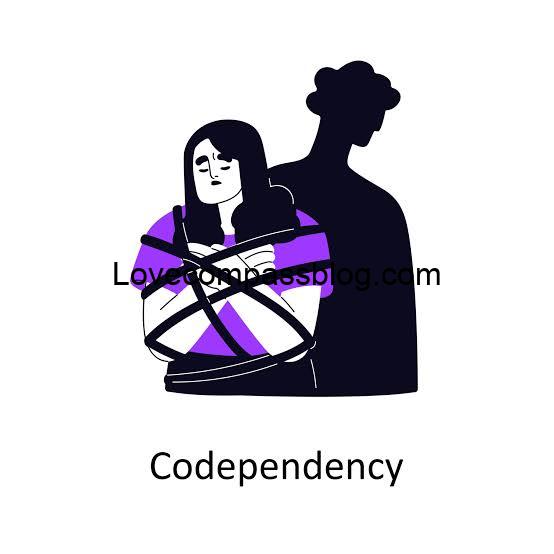Conflict Resolution Strategies for Couples

Conflict is inevitable in any relationship, but the way couples address and resolve these disputes is what determines the strength and longevity of their partnership. Effective conflict resolution allows couples to deepen their connection and avoid the pitfalls that can lead to ongoing strife and dissatisfaction. This article delves into the various strategies couples can adopt to manage conflicts, communicate better, and maintain a harmonious relationship.
Conflict in Relationships

What Causes Conflict in Relationships?
Every relationship encounters conflict, stemming from a variety of sources. Common triggers include:
- Communication Issues: Miscommunication or lack of communication can lead to misunderstandings, assumptions, and hurt feelings. When partners are not on the same page, conflicts can quickly arise.
- Financial Stress: Money is a significant source of tension in many relationships. Disagreements over spending habits, savings goals, and financial priorities can create ongoing stress if not handled carefully.
- Differing Values and Beliefs: When partners have different values, beliefs, or goals, it can lead to conflicts over decisions that affect the relationship’s direction. These differences might relate to religion, family planning, or career ambitions.
- Unmet Expectations: Each partner comes into a relationship with certain expectations. When these expectations are not met—whether due to differences in household responsibilities, affection levels, or emotional support—frustration and resentment can build.
- External Stressors: Life stressors, such as work pressure, health issues, or family obligations, can exacerbate conflicts within a relationship. These stressors often cause partners to take out their frustrations on each other, leading to arguments.
Understanding the root causes of conflict is crucial in addressing them effectively. It’s essential for couples to recognize these triggers early and address them before they escalate into more significant issues.
Types of Conflict
Not all conflicts are the same, and recognizing the type of conflict you’re dealing with can help in choosing the right approach to resolve it. The two primary types are:
- Minor Disagreements: These conflicts involve everyday issues that can usually be resolved quickly with a little communication and compromise. Examples include deciding what to eat for dinner, choosing a movie to watch, or planning weekend activities. While these disagreements may seem trivial, if they occur frequently without resolution, they can lead to larger issues.
- Major Disputes: These involve more significant issues that may require deeper discussion and negotiation. Examples include differing views on parenting, handling finances, or where to live. Major disputes often require more effort and time to resolve, as they touch on core values and long-term goals.
Understanding the nature of the conflict at hand helps couples approach it with the appropriate level of seriousness and effort. Minor disagreements might need a quick conversation, while major disputes may require multiple discussions, compromise, and sometimes even external help like counseling.
Conflict Management in Relationships

Essential Conflict Resolution Skills for Couples
To navigate conflicts effectively, couples need to develop a set of core skills. These skills not only help in resolving existing disputes but also prevent future conflicts from escalating:
- Communication: The most vital skill in conflict resolution is effective communication. This involves expressing thoughts and feelings clearly and directly, without resorting to blame or criticism. It also requires active listening—truly hearing and understanding what your partner is saying without interrupting or formulating a response while they are speaking.
- Tips for Better Communication:
- Stay Calm: Keep emotions in check to avoid saying things that could escalate the conflict.
- Be Clear: State your thoughts and feelings explicitly to avoid misunderstandings.
- Ask Questions: If something is unclear, ask for clarification to ensure you understand your partner’s perspective.
- Tips for Better Communication:
- Empathy: Empathy involves understanding and sharing the feelings of your partner. When conflicts arise, putting yourself in your partner’s shoes can help you see the situation from their perspective, which can reduce anger and help you approach the problem with compassion.
- Ways to Practice Empathy:
- Acknowledge Their Feelings: Recognize and validate your partner’s emotions.
- Listen Actively: Focus on understanding their concerns rather than preparing your defense.
- Express Understanding: Let your partner know that you see where they are coming from, even if you don’t fully agree.
- Ways to Practice Empathy:
- Problem-Solving: Effective problem-solving means working together to find a solution that satisfies both partners. This requires identifying the root of the issue, brainstorming possible solutions, and agreeing on a course of action.
- Steps to Problem-Solving:
- Identify the Core Issue: Discuss what is really causing the conflict.
- Brainstorm Solutions: Think of various ways to address the issue without dismissing any ideas prematurely.
- Choose a Solution Together: Find a compromise that both partners can agree on.
- Steps to Problem-Solving:
- Emotional Regulation: Keeping your emotions under control during a conflict is crucial. Anger, frustration, or sadness can cloud judgment and lead to decisions or statements that you might regret later. Emotional regulation helps ensure that you respond to the situation rationally rather than reacting impulsively.
- Techniques for Emotional Regulation:
- Take Deep Breaths: This can help calm your nervous system and clear your mind.
- Pause Before Reacting: Give yourself a moment to think before responding.
- Practice Mindfulness: Being present in the moment helps you stay focused on the issue at hand rather than getting lost in emotions.
- Techniques for Emotional Regulation:
- Patience: Resolving conflicts, especially significant ones, takes time. Patience is key to working through issues without rushing to a solution that may not be satisfactory for both partners.
- Building Patience:
- Accept Imperfection: Understand that not every problem can be solved immediately or perfectly.
- Stay Committed: Be willing to invest the time and energy needed to resolve conflicts fully.
- Avoid Pressure: Don’t push your partner to resolve the issue quickly; allow the necessary time for both of you to process and discuss the situation.
- Building Patience:
Techniques for Conflict De-Escalation
Conflict escalation can turn a minor disagreement into a significant problem. Learning how to de-escalate conflicts can prevent this and help couples resolve issues more peacefully:
- Taking a Break: If emotions are running high, it’s often helpful to take a break and return to the conversation later. This pause allows both partners to cool down, gather their thoughts, and approach the issue with a clearer mind.
- How to Take a Break:
- Set a Time to Resume: Agree on a specific time to come back to the discussion to ensure it doesn’t get ignored.
- Use the Break Wisely: Reflect on your own feelings and the points you want to address rather than dwelling on anger.
- How to Take a Break:
- Using “I” Statements: Communicating using “I” statements rather than “you” statements can reduce defensiveness. For example, saying “I feel hurt when…” is less accusatory than “You always make me feel…”.
- Examples of “I” Statements:
- “I feel neglected when you don’t check in during the day.”
- “I need more support with the household chores.”
- Examples of “I” Statements:
- Active Listening: This involves listening with the intent to understand, not just to respond. It requires focusing entirely on what your partner is saying, without interrupting or planning your rebuttal.
- How to Practice Active Listening:
- Paraphrase: Repeat back what your partner said in your own words to ensure you understood correctly.
- Nod and Maintain Eye Contact: Show that you are engaged in the conversation.
- Avoid Interrupting: Let your partner finish speaking before you respond.
- How to Practice Active Listening:
These techniques are powerful tools in keeping discussions productive and preventing conflicts from spiraling out of control.
Proven Conflict Resolution Strategies

Communication Techniques
Effective communication is at the heart of conflict resolution. Here’s how couples can enhance their communication:
- Active Listening: When you practice active listening, you not only hear the words your partner is saying but also understand the emotions and intentions behind them. This reduces misunderstandings and ensures that both partners feel heard.
- Active Listening Tips:
- Reflect on What’s Said: Before responding, take a moment to reflect on what your partner has said.
- Respond Thoughtfully: Base your response on what you’ve understood, rather than reacting immediately.
- Show Empathy: Demonstrate that you understand their perspective, even if you don’t agree.
- Active Listening Tips:
- Non-Verbal Communication: Your body language, facial expressions, and tone of voice can convey as much as, if not more than, your words. Being aware of these non-verbal cues can help ensure your communication is clear and respectful.
- Improving Non-Verbal Communication:
- Maintain Open Body Language: Avoid crossing your arms or turning away, as these can signal defensiveness or disinterest.
- Use Gentle Tones: A calm, even tone can help keep the conversation peaceful and focused on resolution.
- Make Eye Contact: This shows you are paying attention and are fully present in the conversation.
- Improving Non-Verbal Communication:
- “I” Statements: Using “I” statements is a simple yet effective way to express your feelings without making your partner feel attacked. This approach encourages a more open and less defensive response.
- Creating Effective “I” Statements:
- Be Specific: Focus on specific actions and how they make you feel.
- Avoid Generalizations: Instead of saying “You always,” focus on the current situation.
- Express Needs Clearly: Follow up with what you need or hope to happen next.
- Creating Effective “I” Statements:
Problem-Solving Strategies
Conflict resolution is not just about talking through issues—it also involves finding practical solutions. Here’s how couples can effectively solve problems together:
- Identify the Problem: Begin by clearly identifying the problem. Both partners should agree on what the core issue is, which may require some discussion to ensure you’re addressing the same problem and not talking past each other.
- Clarification Techniques:
- Ask Open-Ended Questions: These can help explore the issue further and ensure both partners understand the problem.
- Summarize the Issue Together: After discussing, summarize what you both agree is the main problem to ensure alignment.
- Brainstorm Solutions Together: Once the problem is clear, brainstorm potential solutions. During this stage, it’s important to consider all ideas, even those that might seem impractical initially. The goal is to be open and creative in finding a resolution.
- Effective Brainstorming Tips:
- Avoid Criticizing Ideas: Let each idea be presented without judgment to foster creativity.
- Build on Each Other’s Ideas: Sometimes, combining elements of different suggestions can lead to the best solution.
- Keep Focused: Ensure the brainstorming session stays on topic and doesn’t devolve into further arguments.
- Effective Brainstorming Tips:
- Evaluate the Options: After brainstorming, evaluate the pros and cons of each solution. This requires honest discussion about what each partner is willing to do and what might be too difficult or unworkable.
- Evaluation Techniques:
- Discuss Feasibility: Consider whether the proposed solutions are realistic given your current circumstances.
- Weigh the Impact: Think about how each solution might affect the relationship in the long term.
- Consider Compromise: If one solution isn’t perfect for both partners, find a middle ground that satisfies both to some extent.
- Evaluation Techniques:
- Agree on a Plan: Choose the solution that both partners can agree on and develop a clear plan for implementing it. This might involve setting timelines, agreeing on specific actions, or deciding how you will check in with each other to ensure the plan is working.
- Creating a Plan:
- Define Roles: Clearly outline what each partner will do as part of the solution.
- Set Milestones: Establish short-term goals to track progress and keep both partners engaged.
- Review Regularly: Plan to revisit the issue after a certain period to ensure the solution is working or if adjustments are needed.
- Creating a Plan:
- Implement the Solution: Follow through on the plan, with both partners committing to their roles. During this phase, it’s essential to stay patient and flexible, as some solutions might take time to show results.
- Implementation Tips:
- Stay Consistent: Both partners should be diligent in fulfilling their part of the agreement.
- Communicate Continuously: Keep the lines of communication open to discuss how the solution is working or if any adjustments are necessary.
- Support Each Other: Encourage and support your partner as you both work through the implementation.
- Implementation Tips:
Handling Unresolved Conflict
Sometimes, despite the best efforts, conflicts remain unresolved. It’s important not to let unresolved conflicts fester, as they can lead to resentment and further issues down the line. Here are some strategies for handling unresolved conflicts:
- Acknowledge the Issue: Recognize and admit that the conflict hasn’t been resolved. Avoiding or ignoring the issue will only make it worse.
- Steps to Acknowledgment:
- Openly Discuss the Stalemate: Talk about why the issue remains unresolved without placing blame.
- Reflect on Previous Attempts: Consider what went wrong in previous resolution attempts.
- Steps to Acknowledgment:
- Seek Outside Help: If you find that you cannot resolve the conflict on your own, consider seeking help from a third party. This might be a trusted friend, a relationship counselor, or a mediator who can offer a fresh perspective and guide the discussion.
- When to Seek Help:
- Repeated Failures to Resolve: If you’ve tried multiple times and still haven’t resolved the conflict, outside help might be necessary.
- Emotional Deadlock: When emotions are so high that productive conversation seems impossible.
- Complex Issues: If the conflict involves deep-seated issues that require professional insight.
- When to Seek Help:
- Agree to Disagree: In some cases, it might be necessary to agree to disagree, especially if the issue is not central to the relationship’s overall health. However, this should be a conscious and mutual decision, with both partners agreeing to move forward without harboring resentment.
- How to Agree to Disagree:
- Respect Each Other’s Views: Acknowledge that it’s okay to have different opinions or approaches.
- Set Boundaries: Decide how you will handle discussions about the issue in the future, ensuring that it doesn’t become a recurring point of contention.
- Focus on the Relationship: Remember that the health of the relationship is more important than winning a particular argument.
- How to Agree to Disagree:
Preventing Future Conflicts
Preventing conflicts from arising in the first place is always better than trying to resolve them after they occur. Here are some strategies to help couples minimize future disputes:
- Regular Check-Ins: Make it a habit to have regular check-ins with your partner to discuss the state of your relationship. This proactive approach allows you to address minor issues before they escalate into major conflicts.
- How to Conduct Check-Ins:
- Set Aside Time: Dedicate a specific time each week or month to talk about the relationship.
- Be Honest and Open: Use this time to express any concerns, no matter how small, to prevent them from growing.
- Celebrate Positives: Don’t just focus on problems; acknowledge what’s going well in the relationship.
- How to Conduct Check-Ins:
- Maintain Healthy Boundaries: Healthy boundaries are essential in preventing conflicts. These boundaries might relate to personal space, financial responsibilities, social interactions, or emotional needs.
- Establishing Boundaries:
- Communicate Clearly: Discuss and agree on what is acceptable in various aspects of the relationship.
- Respect Each Other’s Limits: Be mindful of your partner’s boundaries and avoid overstepping them.
- Revisit Boundaries as Needed: As the relationship evolves, regularly discuss whether your boundaries need adjustment.
- Establishing Boundaries:
- Foster a Positive Environment: Cultivate an environment in your relationship that prioritizes positivity, support, and understanding. When the relationship foundation is strong, conflicts are less likely to arise and easier to resolve when they do.
- Building a Positive Environment:
- Express Appreciation: Regularly show gratitude and appreciation for your partner.
- Stay Connected: Engage in activities that strengthen your bond, such as date nights, shared hobbies, or simply spending quality time together.
- Support Each Other’s Growth: Encourage and support each other’s personal growth and goals.
- Building a Positive Environment:
- Learn and Grow Together: View conflicts as opportunities for growth rather than as threats to the relationship. By learning from each conflict, you can develop better strategies for handling future disagreements.
- Growth Opportunities:
- Reflect on Past Conflicts: Consider what worked and what didn’t in previous conflicts to improve your approach.
- Adapt and Adjust: Be willing to change your behaviors and strategies as needed to maintain harmony.
- Invest in Your Relationship: Consider taking courses, reading books, or attending workshops together to strengthen your conflict resolution skills.
- Growth Opportunities:
Conclusion
Conflict resolution is a vital skill for any couple. By understanding the root causes of conflict, developing key resolution skills, and adopting effective strategies, couples can navigate disputes with compassion and collaboration. Addressing conflicts early, communicating openly, and supporting each other through challenges ensures that the relationship remains strong and resilient, even in the face of inevitable disagreements.





